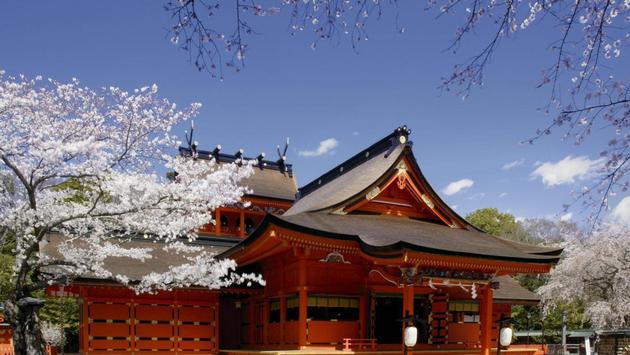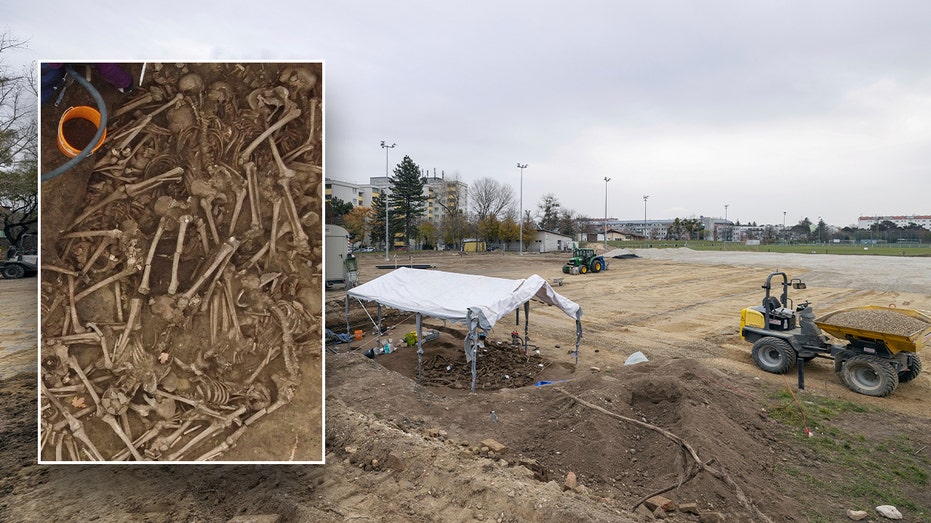- by foxnews
- 08 Apr 2025
Japan's Smaller Cities Offer Lands of Discovery and Adventure
Japan's smaller cities offer incredible adventures, both active and relaxing.
- by travelpulse
- 26 Dec 2021
- in travel

Tokyo and Kyoto aren't the only worthwhile destinations to visit in storied Japan, but they're often the only ones Americans know about. Its smaller towns offer plenty of attractions, from a land where oriental white storks fly overhead to a historic town memorable for its hot springs to another notable for its close proximity to the stately and picturesque Mount Fuji.
They're also perfect complements to a longer tour throughout Japan, offering less crowded destinations with just as much culture, history and gastronomic adventure as the larger cities.
Toyooka City, located on the northern coast of southwestern Japan, can be accessed from Kyoto or one of the other cities in the region. It's a beautiful town offering opportunities to enjoy Japanese culture at its most elemental, complete with izakayas, or pub-style restaurants offering delicious regional dishes.
The town is home to the country's oldest wooden market, Kousetsu Ichiba, which offers freshly grown produce and flowers. Toyooka, known for its history of producing high-quality bags, offers its own Caban Street, or bag street, where travelers can pick up a bag or wicker trunk whose legacy reflects the town's 1,200 year-old bag-making history.
The town is located near two very special natural landmarks. The first is the Genbudo Caves, where columns of basalt rise to the sky in a staggeringly organized manner. The second is the oriental white stork, or kounotori. This gorgeous bird was once found all across Japan, but was threatened nearly to extinction in the mid-1900s.
It was in Toyooka City that residents captured some of the last wild oriental white storks and began breeding them in an effort to continue their species. Today, Hyogo Park of the Oriental White Stork in Toyooka is a free, family-friendly attraction that includes educational activities along with wildlife viewings.
Kinosaki is a historic town along the Maruyama River in Hyogo Prefecture, just north of Toyooka City. Known for its onsens, or hot springs, residents and travelers to the town have been soaking in the springs since the year 720 A.D!
Kinosaki's seven public onsens, unlike many others throughout Japan, are tattoo-friendly, which means that travelers with tattoos that cannot be hidden won't be denied entry to the springs.
This picturesque town is perfect for visits throughout the year, but is especially beautiful in the winter, when a layer of soft snow covers the tiles roofs and cobblestone streets. Visitors can enjoy skiing and snowshoeing, or hiking along the Ropeway Hiking Course, which includes a stop where hikers can view the valley below.
As a town with a historic past, there's no limit to cultural and historical experiences in Kinosaki, too. Tea ceremonies, meditation, calligraphy workshops and a stop to Osenji Temple are a must for travelers who'd like to immerse themselves in Japanese culture.
The immersion goes even further at the Nishimuraya Honkan, where guests can stay in a traditional ryokan-style property, with an indoor and outdoor onsen for guests to enjoy, as well as a peaceful Japanese garden.
The closest city to the esteemed and picturesque Mount Fuji is Fujinomiya, in the Shizuoka Prefecture. The city is the starting point for two routes leading to the top of Mount Fuji and is an ideal destination for active adventurers.
Travelers can learn about the region's historic significance at the Mt. Fuji World Heritage Center, then prepared adventurers can start their trek upwards into the clouds with the Fujinomiya Trail or Prince Route. Families or travelers who'd rather not trek the mountain can also enjoy tours around the mountain, from just hiking to whitewater rafting and more.
Other travelers can enjoy visiting Mt. Fuji Sengen Taisha Shrine, which has a 2,000-year history as one of the most important shrines of the region. Travelers can also purchase and learn how to wear a traditional Japanese kimono and try locally crafted sake, made from Mt. Fuji's snowmelt from the Shiraito Falls.
Funjinomiya is easy to visit from Tokyo. Travelers can take the Yakisoba Express Bus, which goes directly to the town from Tokyo, making this a great addition to any Tokyo visit.
Located near Mt. Fuji is another town notable for many of its adrenaline-inducing attractions. Gotemba, home to the Fuji Speedway, many golf courses and the start of the longest trail up Mt. Fuji offers plenty to enjoy.For travelers wanting a longer, less crowded trek up Mt. Fuji, the Gotemba Trail is perfect for them, as it is less popular and less developed. Gotemba is also known for its many hot springs, which makes for a perfect end to a cold hike or outdoor activity, like cycling or horseback riding.
Gotemba is also where outdoor lovers can enjoy a luxury glamping experience with Fujino Kirameki. Featuring gourmet food, luxurious accommodations and excursions like forest walks, hiking, cave exploring and more, travelers can enjoy the best of adventure travel without skimping on the luxury.
Speaking of luxury, travelers to the tea-rich Shizuoka Prefecture should consider Atami City as a great base for their explorations of Japanese culture and food, only 40 minutes away from Tokyo by train.
This coastal city boasts wonderful onsens, views of Mount Fuji and plenty of delicious seafood dishes for the adventurous eater.
This city is also known for three of its luxury accommodations.
The Momoyama Gaen by The Curation Hotel offers Japanese design in locally sourced materials and craftsmen, complete with an onsen and art from the Japanese Edo period. Tounoya-an by The Curation Hotel is a historic Japanese kominka, a stunning villa complete with an on-site onsen and modern accommodations.
Suto-suien by The Curation Hotel is another kominka property, which fuses two Japanese styles together to create a truly unique blend of wabi-sabi, the acceptance of imperfection, and Rinpa, an Edo period artistic style.
- by foxnews
- descember 09, 2016
Ancient settlement reveals remains of 1,800-year-old dog, baffling experts: 'Preserved quite well'
Archaeologists have recently unearthed the remarkably well-preserved remains of a dog from ancient Rome, shedding light on the widespread practice of ritual sacrifice in antiquity.
read more




